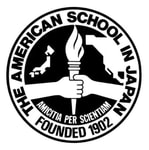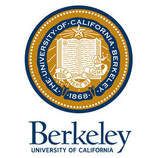2005
|
I was born and raised in Tokyo, Japan, where I could have attended a Japanese school. However, my Japanese mother and American father made the home a bilingual environment and felt that I would have greater prospects as the product of a proper English education – hence my early entry into The American School In Japan (ASIJ) from age four (1990) to graduation (2005).
I am forever grateful to my parents for providing me with the opportunity to join a learning community of such diverse individuals, where I was able to lay my international roots. At ASIJ I was able to witness firsthand both the strengths and weaknesses of a large international school from a student’s perspective. The school’s experienced faculty and superb facilities were (and are still) truly world class. At the same time, I recall the school rejecting new ideas proposed by students for seemingly no other reason than institutional inertia. To wit, it has been decades since ASIJ introduced new debate and MUN competitions, and in my day I cannot recall the offering of new classes – perhaps due to a faculty that consisted of teachers who were experienced but not necessarily cutting edge. |
2009
|
UC Berkeley has a special place in my heart, as it was the school I was fated to attend. Not only did my grandmother and grandfather meet there, but it is also the alma mater of my father.
I found the school academically rigorous but somehow graduated with a GPA of roughly 3.30. When not devoted to my studies, I found time to serve as president of the Japan-USA Union, an organization that provided me with an avenue to pursue the kind of intercultural exchange that has always been a dominant element throughout my life. I intended to play soccer at UC Berkeley, as I did at my previous school. However, 1-month before trials, I tore my anterior cruciate ligament (ACL) and medial collateral ligament (MCL) which sidelined me for 14-months, effectively ending my collegiate soccer career. I graduated from Berkeley with a Political Science degree. I pursued a Poli-sci degree originally, with the intention of attending law school. I applied to law schools in the fall of 2008 and was accepted to most of the schools I wished to attend. However, with a job offer on the table from PricewaterhouseCoopers (PwC) concurrent with the recent financial crisis pushed me towards working rather than spending three more years in school. |
2010-2013
|
With a freshly minted degree in Political Science from UC Berkeley in hand, I joined the workforce by returning to Tokyo to assume employment as a consultant at PricewaterhouseCoopers (PwC) in 2009. Though I was not sure of the reason at first, I soon realized that the PwC way was not the lifestyle I desired. The first alternative that came to mind was teaching, an occupation that had been on my radar due to both of my parents having worked as educators.
I was able to transition out of PwC and into the teaching-certificate program of The College of New Jersey (TCNJ) in literally one week. The TCNJ overseas program afforded me the opportunity to make the acquaintance of many other educators in Asia, a process I found quite inspiring. To sum up, the TCNJ curriculum, summer courses in Thailand and Spain, and a student-teaching stint at my alma mater of ASIJ (under my mentor, Dan Smith, a grade-seven Language Arts teacher who had been at ASIJ even when I was in middle school) resulted in a credential to teach secondary-level Social Studies. I returned to the TCNJ program two years later to initiate the process of earning a Master of International Education degree. |
2017-2021
|
While pursuing my career as an educational professional in the classroom, during the years of 2017 to 2020 I also worked toward obtaining principal certification. A very hands-on program, it included a 150-hour internship under the tutelage of Benjamin Wilkins at Korea International School Jeju.
The experiences included leadership positions such as advisory lead and grade-10 team leader in tandem with the classes I attended with educators and administrators at the NIST campus (Bangkok, Thailand). Having experienced school ways as a student and currently as a teacher, I now feel that work as an administrator is an enticing prospect, as it would afford me engagement with a school on a more macro and holistic level. Having worked closely with many superb administrators thus far, I have marveled at their skill in successfully completing a challenging balancing act day in and day out as they cater to myriad needs of stakeholders while also maintaining their own vision and leaving a positive imprint on the institution. I feel that my familiarity with the unique traits of multicultural international schools is potentially a formidable tool in the arsenal I would bring to the job, although I realize that in order to do justice to my work as an administrator, I would need far more than simply my background as a TCK. Just as I have endeavored to improve my teaching by getting to know my students better, I foresee a management position necessitating close attention to the faculty I work with: showing sensitivity to their needs, recognizing their accomplishments and making sure that they are provided with appropriate assistance when that is warranted. And that is only one dimension. The school/division administrator also needs to articulate and establish a vision that taps into the school's traditions and status quo while also guiding it to the next level. |





